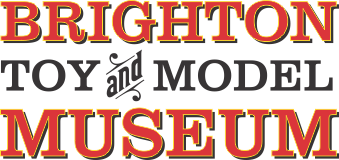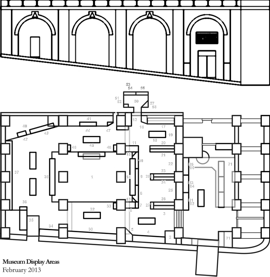Category:Prestacon Model Engineering: Difference between revisions
(+links) |
m (-typo) |
||
| Line 5: | Line 5: | ||
==Comparisons with Meccano-like systems== | ==Comparisons with Meccano-like systems== | ||
====Advantages over Meccano==== | ====Advantages over Meccano==== | ||
Like Juneero, the | Like Juneero, the focus of Prestacon was a patented multi-purpose tool that could bend and punch metal, so that instead of buying a set of pre-punched metal strip components to build your model (like [[Meccano]]), you instead used the tool to make the specific parts that you needed. This was arguably closer to "proper" engineering and metalworking than Meccano's approach, and to make a largeish model you didn't have to buy huge sets of components, many of which you'd never need, want or use -- you could fabricate just the parts that you needed for a specific project. The results could also look more realistic, as the models wouldn't be riddled with unneccesary holes. | ||
====Disadvantages with respect to Meccano==== | ====Disadvantages with respect to Meccano==== | ||
Revision as of 12:34, 2 September 2022
The shoert-lived Prestacon metal construction kit system (~1947-1950) was superficially similar to the better-established Juneero sets, which had been around since before WW2.
The September 1950 issue of Meccano Magazne carried a half-page advert from Gamages (just for one month) proclaiming that they'd bought up the stock and were selling it off at half price: this presumably marked the end of the product.
Comparisons with Meccano-like systems
Advantages over Meccano
Like Juneero, the focus of Prestacon was a patented multi-purpose tool that could bend and punch metal, so that instead of buying a set of pre-punched metal strip components to build your model (like Meccano), you instead used the tool to make the specific parts that you needed. This was arguably closer to "proper" engineering and metalworking than Meccano's approach, and to make a largeish model you didn't have to buy huge sets of components, many of which you'd never need, want or use -- you could fabricate just the parts that you needed for a specific project. The results could also look more realistic, as the models wouldn't be riddled with unneccesary holes.
Disadvantages with respect to Meccano
The problem with Prestacon's approach, of only making holes where they were strictly needed, and permanently fixing the parts together, was that after having made a model the user was stuck with it: there wasn't an easy way of disassembling it to reuse the parts and make something else. If you bought a kit to make a truck, and you wanted to play with that truck, then that was fine: however, if you didn't particularly want to keep the truck after you'd made it, and wanted to play by going on to make other things, then perhaps somethong like Meccano was more sensible.
Similarities with Meccano
Some "specialist" parts that could not be realistically be made by the owner were included with the sets, including a steering wheel, some rather nice large vehicle wheels with heavy tyres, and a surprisingly thorough selection of gears.
External links
Pages in category ‘Prestacon Model Engineering’
The following 2 pages are in this category, out of 2 total.
Media in category ‘Prestacon Model Engineering’
The following 4 files are in this category, out of 4 total.
- Prestacon lineart (MM 1950-09).jpg 2,631 × 1,889; 574 KB
- Prestacon Model Engineering, box logo, colour.jpg 1,800 × 956; 211 KB
- Prestacon, Gamages advert (MM 1950-09).jpg 1,800 × 1,339; 520 KB
- The Prestacon Press (PrestaconIB ~1947).jpg 2,000 × 1,807; 296 KB






